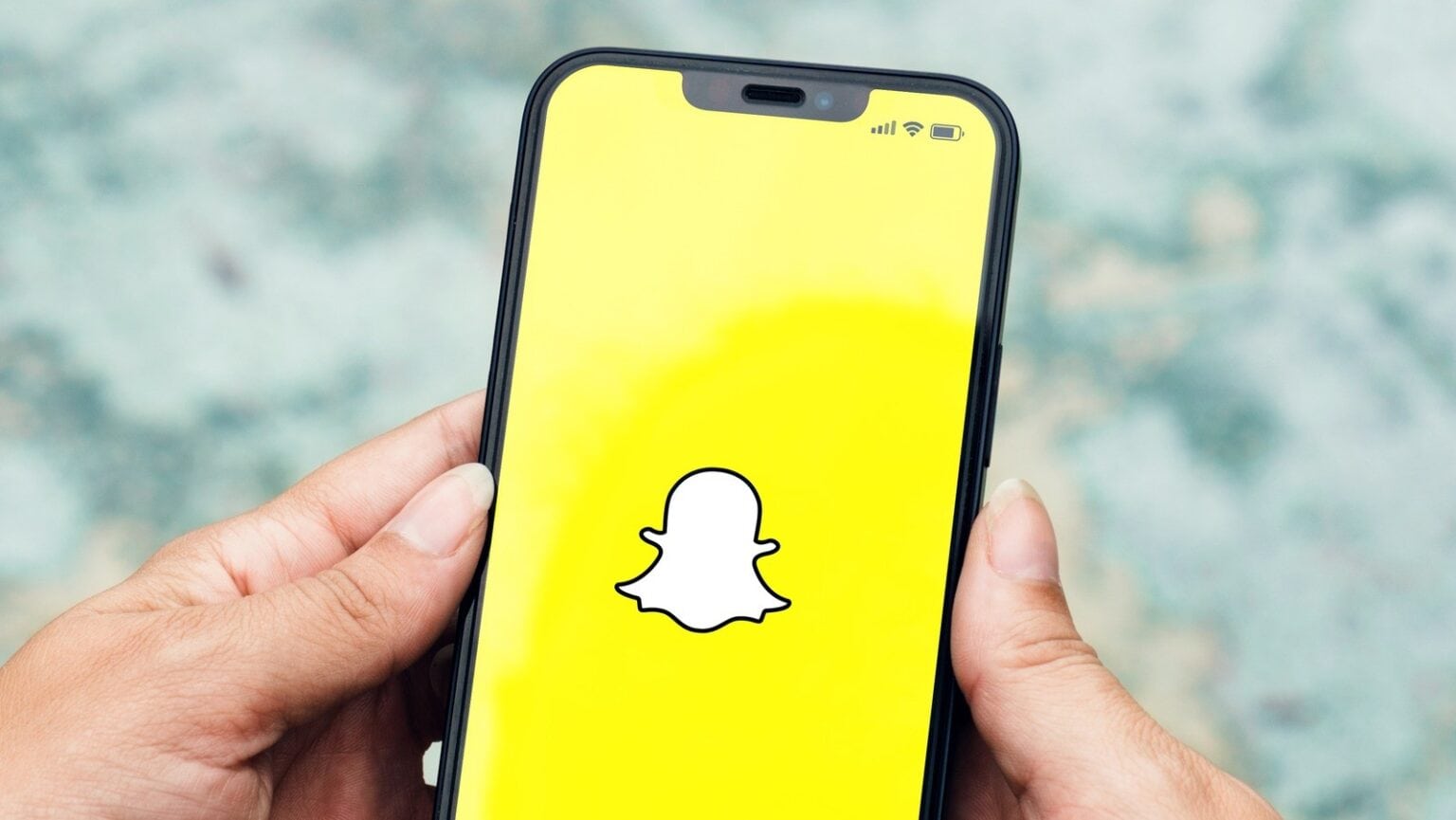China’s digital sphere is known for its unique blend of innovation and regulatory challenges, especially when it comes to popular global platforms like Snapchat. In this guide, we’ll unveil the secrets to accessing Snapchat while navigating China’s internet restrictions. Let’s dive into the world of VPNs, tips, and tricks to enjoy Snapchat in the Middle Kingdom.
Before we embark on our Snapchat journey, it’s essential to grasp the concept of the Great Firewall. This sophisticated internet censorship system controls and filters online content, including access to foreign apps. Enter Virtual Private Networks (VPNs), your key to unlocking the digital door to Snapchat.
Why is Snapchat banned in China? Snapchat is banned in China due to the Chinese government’s strict internet censorship and control measures. The app’s ephemeral nature and potential for sharing uncensored content could challenge the government’s control over online information.
How to unblock Snapchat in China?
You can use a VPN to bypass the restriction in China and access Snapchat. VPN is a tool for protecting people’s internet traffic and keeping their identities private online. Your internet traffic will go through an encrypted tunnel that nobody can see when you connect to a secure VPN server.
This is my way to access Snapchat and I guess it’s probably the easiest way. Here are 3 steps.
Step 1: Choose the right VPN
The very first step for you is to find a VPN that can work in China. For this first step, a few things you need to be careful of.
- If you’re planning a trip to China and want to use a VPN to bypass the Great Firewall, not all VPNs are created equal. The Chinese government has gotten pretty good at blocking VPNs, so it’s important to do your research and find one that will actually work.
- Make sure to download and set up your VPN app and account before you go to China, because you won’t be able to download it once you’re there. And forget about downloading it directly from the provider’s website, because that’s blocked too.
- Before you head off on your trip, take some time to figure out what kind of VPN plan you need. I suggest going for a yearly or multi-year plan so you don’t get caught without access due to a forgotten renewal. But of course, it all depends on how long you’ll be staying in China.
Step 2: Turn on your VPN
After you’ve signed up for a VPN account and purchased a plan, you’re free to use your VPN! There are 2 crucial settings you need to know.
Choose the right protocol: VPN protocols are sets of programs and processes that determine how that tunnel is actually formed. There will be a few protocol options for you to choose from in a VPN app.
Choose the right server: Normally, a VPN will provide users with 100+ servers from different countries. Because the network speed could be different by region, you need to test a bit to see which countries’ servers could give you the best network speed.
Step 3: Enjoy Snapchat
Once you have access to the internet on your phone or PC, you’re connected to a VPN, which should enable you to access the website snapchat.com, or download the Snapchat apps without any problems. Well, It’s surely common to experience some interruptions with your connection, so I suggest you test out the best VPN servers for yourself.
If you’re still having trouble accessing Snapchat or other blocked websites, you should contact your VPN’s customer support team for further assistance.
What is the best VPN for Snapchat?
I’m recommending NordVPN for anyone in China looking for a fast, secure, and reliable VPN. With a solid overall score of 8.8/10, NordVPN makes sure your internet experience is smooth even with online restrictions.
NordVPN’s performance is impressive, you can stream, work, and browse with little to no slowdowns. Using advanced protocols like NordLynx (based on WireGuard), NordVPN keeps your connection fast and secure.
What sets NordVPN apart is its huge network of over 7,200 servers in 118 countries. This makes it easy to unblock websites and streaming services, which is especially important for users in China who need to bypass restrictions.
The best part? NordVPN offers affordable pricing, starting at just $4 per month (or $60 for the first year). Plus, with a 30-day money-back guarantee, you can try it risk-free.
(NordVPN 1 year deal with 58% off for $5.00/mo)
Here’s a quick look at why NordVPN is a great choice:
| Key Statistic | Value |
|---|---|
| Overall Score | 8.8/10 |
| Introductory Pricing | $4 per month / $60 for the first year |
| Average Speed Loss | Only 3% drop in download speeds (2025 tests) |
| Global Servers | 7,200+ servers |
| Countries Covered | 118 countries |
| Jurisdiction | Panama |
| Advanced Protocols | NordLynx (WireGuard), OpenVPN, NordWhisper |
| Money-Back Guarantee | 30 days |
If you want a fast and private VPN with easy access to global content, NordVPN is a great choice. Start using it today for a better, safer online experience and don’t miss NordVPN 1 year deal with 58% off for $5.00/mo!
Is Using a VPN Illegal in China?
China takes a firm stance against users accessing foreign social media platforms, leading to the blocking of services like Google, Facebook, and Snapchat within its borders.
Recently, all VPN provider apps were removed from the Apple Store. This step was taken in line with the requirement for all services operating in China to adhere to local laws and regulations.
The legality of VPN usage in China is a topic of debate. Chinese authorities have not definitively confirmed their stance on VPNs, but their actions do signal a significant crackdown against these tools.
What is the Chinese version of Snapchat?
The Chinese equivalent of Snapchat is an app called “WeChat” (known as 微信 – Wēixìn in Chinese). WeChat is a multipurpose messaging, social media, and mobile payment app developed by Tencent, a Chinese technology conglomerate. It offers features similar to Snapchat, including photo and video sharing, chat, and Moments (a feature similar to a social media feed).
However, WeChat is much more than just a messaging app; it’s a comprehensive platform widely used in China for various communication and social interactions.

| Type: | For chatting |
| Supported devices: | iOS, Android, Windows |
| App store: | Apple App Store, Google Play Store |
| APK: | https://play.google.com/store/apps/details?id=com.tencent.mm |
| Website: | https://www.wechat.com/ |
| If it’s baned in India: | Banned |
WeChat (also known as Chinese WhatsApp), in China, is not just changing people texting behavior, but also the way they access the internet. WeChat is often called “The Chinese Internet”, as almost anything you do on the web you can also do on WeChat.
The Mini-Programs help WeChat accomplish these, apps that live within the WeChat ecosystem. Besides chatting with your friends, you can use WeChat to call taxis, book hotels, do online shopping, play games, do money transactions, buy tickets, and even loan money, which is so crazy!
I would say you definitely need to know what are the most useful Chinese apps when you’re traveling in China.
FAQ: about Snapchat in China
To set up a VPN in China, follow these steps:
– Choose a reliable VPN provider.
– Download and install the VPN app on your device.
– Open the app and connect to a server located outside China.
Once connected, you’ll have access to the open internet, including blocked websites and apps.
Yes, Americans can use Snapchat in China by using a VPN. With a VPN, you can bypass China’s internet restrictions and access Snapchat just as you would from any other location.
China has its own set of social media platforms that are widely used within the country. Some of the popular platforms include WeChat, Weibo, QQ, and Douyin (known as TikTok outside China). Foreign social media platforms like Facebook, Twitter, and Instagram are blocked or restricted in China.
Snapchat and WeChat are not the same thing. Snapchat is a multimedia messaging app primarily used for photo and video sharing, while WeChat is a comprehensive messaging, social media, and mobile payment app developed by Tencent in China.
Yes, you can use iMessage in China. However, the availability and functionality of some Apple services, including iMessage, can vary due to China’s internet regulations. Using a VPN might also impact the performance of certain features, so it’s recommended to have an alternative means of communication available.
No, Instagram is also blocked in China. The Chinese government’s censorship policies restrict access to foreign social media platforms, including Instagram.
TikTok, known as Douyin in China, does work within China. However, it operates separately from the international version of TikTok and is subject to Chinese regulations.
No, China does not own Snapchat. Snapchat is owned by Snap Inc., an American technology company. Tencent, a Chinese tech giant, has invested in Snap Inc. in the past, but Tencent does not own Snapchat.
WhatsApp is intermittently blocked in China. While it may work at times, it often experiences disruptions due to China’s internet censorship policies.
Discord is generally blocked in China. The Chinese government has a history of blocking foreign communication platforms that are not under its control.
The list of apps banned in China is subject to change, and the Chinese government’s censorship policies can be unpredictable. Apps like Facebook, Twitter, Instagram, YouTube, WhatsApp (partially), Google services, and many foreign news websites are among the apps and websites that are blocked or restricted in China. Additionally, apps promoting uncensored communication or content sharing are likely to face restrictions.

